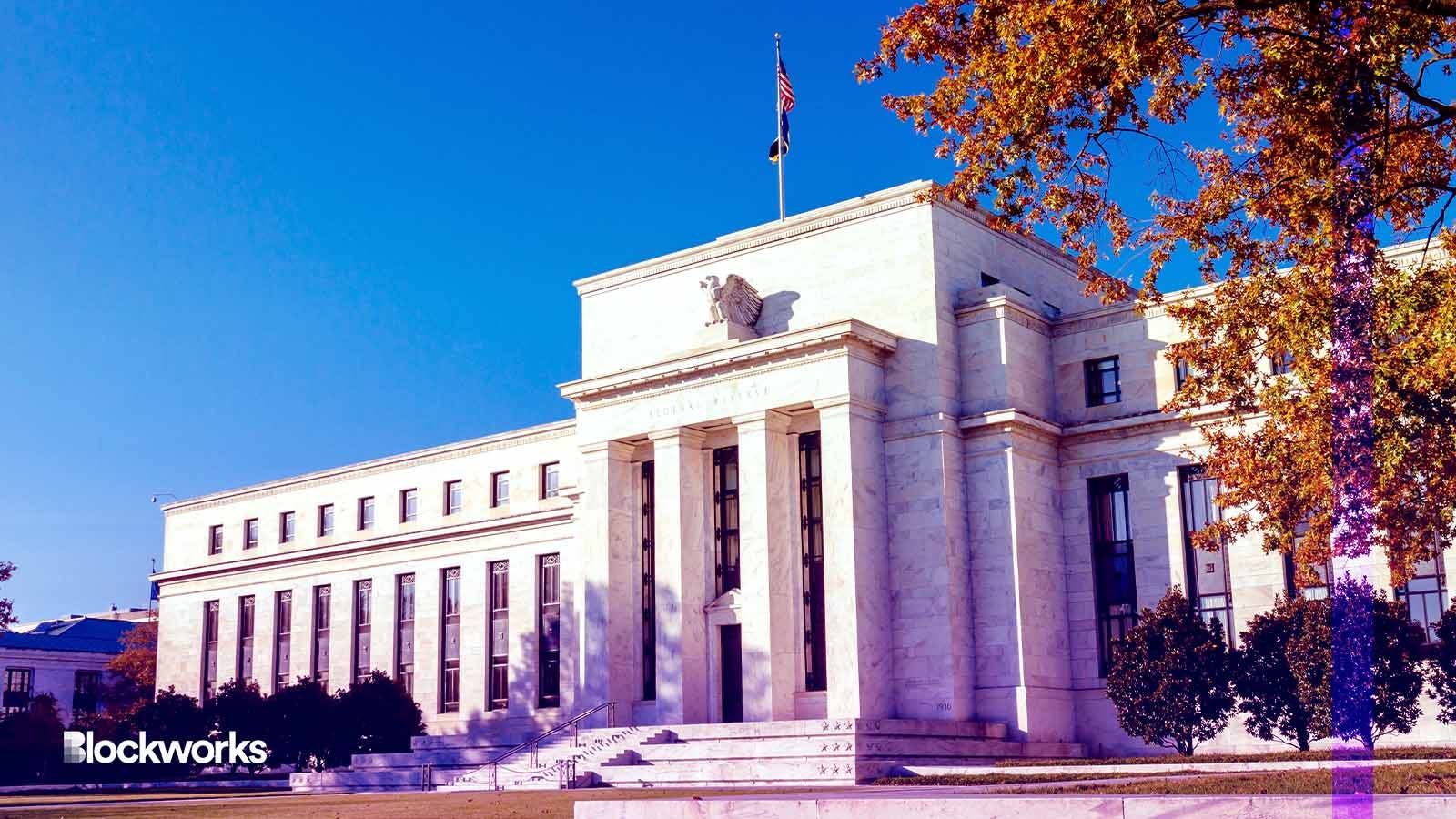Fed’s crypto supervisory group has industry butting heads
Fed’s new rules and supervisory group have some industry members giddy while others fear the worst

Tanarch/Shutterstock modified by Blockworks
The Federal Reserve revealed plans for its “novel activities” supervisory program Tuesday afternoon, evoking mixed sentiments within the crypto industry.
The program is designed to ramp up the central bank’s governance over how banks are using and engaging with cryptocurrency and other technologies the Fed deems “novel.” New rules requiring state banks to go through the Federal Reserve before interacting with stablecoins also made their debut Tuesday.
Some crypto industry members saw the efforts as a welcome intervention from federal regulators after months of begging for clearer guidelines.
“This is an extremely important step in that it provides greater regulatory clarity for those banks looking to custody crypto, support the use of stable coins, and engage in other activities related to digital ledger technology,” Martin Grant, former chief compliance officer at the New York Fed and current global head of regulatory affairs at JST Digital, said.
Others were dubious the new rules would promote innovation as opposed to creating more barriers.
“I worry that this portends to be the Fed opening up to the existence and staying power of stablecoins when in reality they’re creating an untenable pathway to compliance through a subjective non-objection process they have complete control over,” Cody Carbone, vice president of policy at the Chamber of Digital Commerce, said.
The new policy states that subsidiaries of member banks and other non-members must receive written “non-objection” from the Fed before issuing, holding or transacting with stablecoins. Carbone applauded the Fed’s attempt to monitor risk and compliance efforts, but maintained that the new rules give the central bank too much power.
On the other hand, the Fed’s decision to create the program and increase its rules signal that the central bank may be coming around to blockchain as a disruptive technology, John Rizzo, senior vice president for public affairs at Clyde Group, said.
“Crypto opponents will argue that this decision is an indictment of crypto’s inherent risks; however, the decision is a recognition that Congress and federal regulators have moved too slowly to get a regulatory framework for crypto assets in place,” Rizzo said.
Plus, Rizzo added, given the recent banking crisis and ongoing regulatory uncertainty surrounding the space, the central bank was forced to step in.
“The Federal Reserve is between a rock and hard place,” Rizzo said. “The failure to put a regulatory framework for crypto assets in place has created uncertainties at a time when rising interest rates are challenging the viability of certain financial institutions.”
Start your day with top crypto insights from David Canellis and Katherine Ross. Subscribe to the Empire newsletter.





